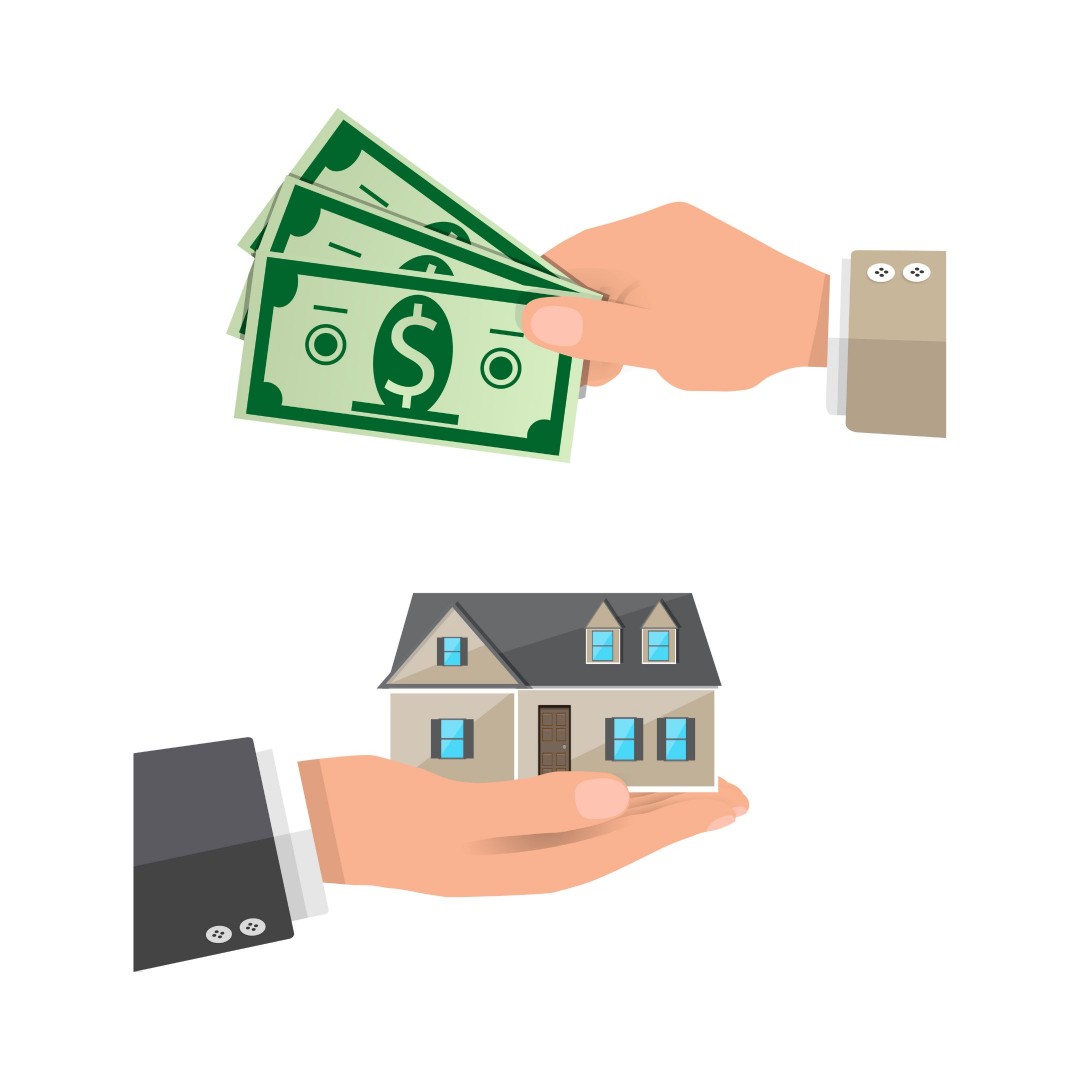
Buying AND Selling
Think back to your teenage years. You really want to go to that party, but your parents won’t let you. Or you have one foot in the fishing boat, and one on the dock, but the instability of the boat has you hesitating before you can get both feet on terra firma.
There is a place that you want to get to, but other circumstances are slowing you down.
That is the real estate market here at the end of 2024 for those who want to both buy and sell. After all, as a buyer, there is quite a bit to choose from. Couple that with improved mortgage rules, and many sellers are chomping at the bit to get going. The challenge is their home is one of many on the market, leaving them with one foot on the dock, and one foot on the boat.
As a seller, your home is competing with many others on the market.
As a buyer, your offer is contingent on the sale of your home that you have not been able to sell.
Sound familiar? Well, if it does, this blog is for you.
First, in case you didn't see, this is Part III of a three-part series.
Part I: Buying a Home. Read it here.
Part II: Selling a Home. Read it here.
Part III: Buying AND Selling a Home ...keep reading :)
Step 1: The Chicken or The Egg 
Arguably the most important step, this is where insight into the current market conditions is so important. What do you do first? Buy or sell? The answer to that question is largely determined by the current market conditions.
Ask yourself these questions:
- How are current market conditions related to my home? Will it be easy, or difficult to sell?
- How are current market conditions related to what I want to buy? Are there plenty of options available or am I looking for something that is tough to find these days?
Here at the end of 2024, we are in a consistently heavy buyer’s market, meaning the overall market conditions are benefiting the buyers. Plenty of supply, less buyer competition, time to shop and think, and an improving mortgage landscape.
So, the chicken or the egg is likely not a big debate for many of us. In a market where the average days on market for the active listings (Niagara) is approaching 100 days, buying first can be a risky path to take when you also have a home to sell.
We have seen and heard of several situations in the past several months where people purchased a home and were unable to sell theirs, and ultimately lost their deposit, or worse, are now in the process of getting sued. Yes, strategy matters.
For more info on the Buy or Sell First debate, check out this blog we wrote back in January 2023.
Step 2: Positioning Your Home 
While the headlines may be grim these days, there are still houses selling in Niagara, and many of them for great prices. The challenge comes when people compare their home or their situation to another market, or to an anecdote that may not relate to their own experience.
Currently, Niagara has a pricing problem. The reality is that we have a considerable number of properties on the market that are not priced relative to buyer demand or values. The home that is priced at $749,900 but should be $699,900 is not going to sell, particularly when a buyer has 28 other homes to choose from.
So, while you embark on your real estate journey, getting your home prepared, positioned, and priced accurately will be a huge determinant of how things go for you. After all, once your home is sold, you are now in the envious position of being able to head out as a buyer without a condition on you selling your home.
Steps to take to position your home to sell.
- Prepare. What needs to be done to make it shine its brightest? Paint touch-ups, repairs, clean-up. Perhaps a garden clean, garage door paint, or a fresh mailbox. Consider the interior and what can be done to tweak and improve it, not just for in-person showings, but so the photos look their best.
- Price. Sit down with your Realtor and take a deep dive into what is happening in the market relative to your home. If you go up at Price A, how many homes are you competing with and how do you compare? What about Price B? Do you fare better or worse against those? Remember, as a buyer, they’ll be comparing your home with others. Price your home so it is well-positioned.
Think of the restaurant that looks delicious, and has a great online presence, but has prices that are a fair bit more than the other restaurants on the street. Unless it offers something I can’t get down the road (live music, a special dish, a particular view), I will probably stroll to another option.
Don’t be the over-priced restaurant.
Step 3: To SOP or Not To SOP 
First, the SOP offer is an offer conditional on the sale of the buyer’s property. If you’re looking to buy and sell, the condition may be an absolute necessity, as in 2024, or a deal killer, as we saw in 2021 when most offers were submitted without conditions.
Depending on whether you’re the buyer or the seller, the condition will vary in how it impacts you and your goals.
As a buyer, the condition works something like this:
- The offer is conditional on the sale of your property.
- The condition is longer than normal, typically in the 30-60 day range.
- There is an escape clause that allows the Seller to accept an offer from Buyer #2, which gives the Seller the right to come back to you and give you a day or two (depending on the wording) to firm up your offer or release and move on.
- It essentially allows you to gain the first right of refusal on the property while allowing the seller to still find other buyers who don’t have a home to sell.
Now, let’s flip that the other way.
As a seller, your home is for sale, and someone brings you an offer conditional on the sale of their home. The condition would work something like this:
- The offer is conditional on that buyer selling their home. You are hitching your wagon to their home, their asking price, and their Realtor’s ability to sell it.
- The condition is longer, so during that time, your home would be tagged as “conditionally sold” which will reduce overall activity and showings.
- The escape clause allows you to still sell your home to someone else, but the timing specified in the clause will impact your timeline.
Not all SOP offers are created equal. The buyer with the SOP offer is carrying less risk when compared to the seller. As well, as a seller, the reality is that once a property is conditionally sold, activity will lessen. If you’re a seller who has accepted an SOP offer, while having an accepted offer may feel good, you have to realistically ask yourself:
“What is the likelihood that the buyer’s home will sell?”
This is where getting relevant and timely insight from your Realtor will be key. Don’t just sign on the dotted line without doing some detective work.
For a deeper dive on the subject of SOP offers, check out this blog that we wrote back in 2023.
Step 4: Keep in the Loop 
The antidote to stress is information.
As a seller, you’ll want to know how your home is doing on the market. How are the online views, the showing feedback, and overall market response? Also, what is happening with those surrounding properties that you’re competing against? Are they selling, and if so, for how much? What about new listings? Are they going to erode or help support your valuation?
As a buyer, keeping track of the listing activity can be a full-time job. You’ve hired a Realtor, so put them to work. Make sure you’re in the loop on new listing activity, sales, and any other market data as it relates to what you’re looking for.
And back to the SOP offer, if you’re a seller with an SOP offer in on your home, progress reports from the buyer and their home will be important in terms of gauging your next steps.
Smooth communication channels are worth their weight in gold. Whether it’s a group text, a group WhatsApp or steady phone calls, the more you’re aware and in the loop of progress, or lack thereof, the better you’ll feel.
Step 5: Be Agile 
Time can be an enemy or an asset, depending on the market and where you fit into it. In a market with long days on the market, slower buyer demand, and overall lukewarm market sentiment, you will want to move quickly rather than seeing what happens over the next month. After all, if you're selling a home, do you want to be for sale, or do you want to be sold?
If you've had your home on the market and had 8 showings through with similar feedback, then act on that feedback. If it's price, adjust your numbers. If it's something that needs to get fixed or cleaned, take care of it.
There is a direct correlation between time on the market and the quality of the buyers and ultimately, the offers that you receive. Data shows that the home that sells in the first few weeks will sell for a better percentage of the asking price when compared to the home that sells after 72 days on the market.
Why? The leverage between the buyer and seller is completely different in those two scenarios.
As a buyer, be prepared that you're going to miss out on a property that you like because your home isn't sold. Do the calculations of the possible reduction in the value of your home when compared with the possible reduced price of the home you're going to purchase.
When buying and selling in the same market conditions, what you may not gain on the sale of your home may be able to be recovered when you purchase.
Again, know your plan, know the numbers, and know the market.
To Sum Up.
If this sounds like a lot, well, you're right, because it is. When a home sells, it is so much more than a few people exchanging a big chunk of money. Quite often, there is a long row of dominos involved in the sale and/or purchase of a property, each on their own emotional roller coaster with their own needs and wants.
Remember, people move for countless reasons. A few of the most common:
- first-time buyer
- new to the country
- move-up (need more space)
- economic move (larger or smaller)
- divorce
- marriage
- job transfer
- estate sale
- moving to a rental or senior's home
- rental property sale or aquisition
- vacation property
With each of those scenarios comes a different basket of motivation, emotions and tolerance for risk and stress. So, while this three part blog series is looking at the selling and buying process as a whole, we fully recognize that each person involved will have their own needs in order to successfully navigate what can be a harrowing journey.
This is where the value of a skilled and experienced Realtor will play a critical roll.
If we can help at all with this, or anything real estate related, please don't hesitate to contact us anytime.
